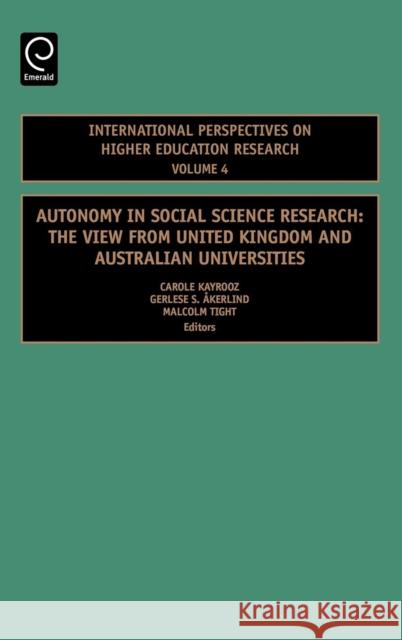Autonomy in Social Science Research: The View from United Kingdom and Australian Universities » książka
Autonomy in Social Science Research: The View from United Kingdom and Australian Universities
ISBN-13: 9780762314058 / Angielski / Twarda / 2007 / 248 str.
This book examines how and why autonomy matters in contemporary social science research. It considers how autonomy impacts upon the individual researcher, the cultures and values of the university, and research motivation and sponsorship. The authors provide a better understanding of the interplay between individual and institutional autonomy, the issues arising from this interplay, and the value of an independent academic sector to the external community.
Successive chapters consider: the variation in social scientists??? understanding of academic freedom; the researcher??'s view on academic autonomy and decision making; the influence of Hayek on thinking about freedom and markets; the idea of academic freedom in 14th century Oxford; the policy basis for academic freedom and autonomy in Australia; the extent to which autonomy can be seen in the career of one academic; the particular case of research into higher education itself; and the impact of the research assessment exercise in the United Kingdom.
The book sheds light on a critically important but under-studied issue, seeking to offer a clarification of the meaning of academic freedom and autonomy, and the roles of institutional regulatory and managerial environments in supporting them.
*Examines autonomy and its relationships to the individual researcher, the university, and research motivation and sponsorship
*Provides a better understanding of the interplay between individual and institutional autonomy
*Authors include experts from the UK and Australia; chapters go in to autonomy within specific contexts (14th century Oxford, Australia, etc.)











